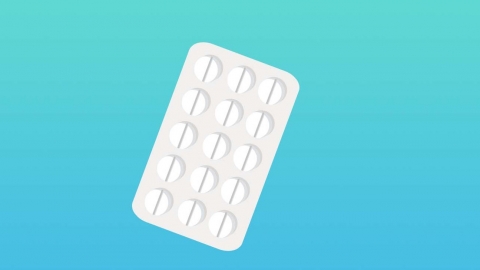Domperidone: Efficacy and Side Effects
Domperidone tablets (commonly known as Motilium) typically have effects including enhancing gastric motility, relieving nausea and vomiting, preventing gastroesophageal reflux, alleviating dyspepsia, and assisting in the treatment of other gastrointestinal diseases. Possible side effects include gastrointestinal reactions, central nervous system reactions, allergic reactions, cardiac reactions, and endocrine system reactions. If discomfort occurs, seek medical attention promptly.

I. Therapeutic Effects
1. Enhancing Gastric Motility: This medication enhances the contraction of gastrointestinal smooth muscles by blocking peripheral dopamine receptors, accelerates gastric emptying, and shortens the retention time of food in the stomach. It helps speed up gastric emptying so that food can enter the small intestine more quickly for digestion and absorption, thereby reducing feelings of gastric fullness.
2. Relieving Nausea and Vomiting: The drug has antiemetic effects without affecting gastric secretion. It can inhibit postoperative nausea and vomiting. It is also effective against nausea and vomiting caused by motion sickness (such as motion sickness during travel), gastrointestinal diseases, or side effects of medications.
3. Preventing Gastroesophageal Reflux: This medication increases the tone of the lower esophageal sphincter, preventing gastric contents from refluxing into the esophagus, thus protecting the esophageal mucosa from damage caused by gastric acid.
4. Alleviating Dyspepsia: The drug can improve delayed gastric emptying and relieve symptoms of dyspepsia such as belching, bloating, and abdominal pain. Combined with other therapeutic medications, it can better relieve symptoms and promote recovery.
5. Assisting in the Treatment of Other Digestive Diseases: This medication can also be used as an adjunctive treatment for other conditions such as cholecystitis and gallstones, improving gastrointestinal motility and relieving symptoms.
II. Side Effects
1. Gastrointestinal Reactions: The drug may stimulate gastrointestinal smooth muscles, occasionally causing diarrhea or constipation. Its regulatory effect on intestinal motility may be excessive in some individuals, leading to either accelerated or slowed intestinal peristalsis, which can result in diarrhea or constipation.
2. Central Nervous System Reactions: Symptoms such as headache, dizziness, and drowsiness may occur. The drug exerts some stimulatory effects on cerebral blood vessels or nerves, but these symptoms generally subside gradually after discontinuation.
3. Allergic Reactions: A small number of patients may be allergic to domperidone tablets, experiencing allergic reactions after administration, including skin itching, rashes, urticaria, stomatitis, and conjunctivitis.
4. Cardiac Reactions: Some patients may experience arrhythmia. The drug may affect the electrophysiological activity of the heart. Patients with a history of heart disease or those taking other medications that may affect cardiac function may be at higher risk.
5. Endocrine System Reactions: The drug may have certain effects on the endocrine system, with women possibly experiencing symptoms such as breast tenderness and menstrual irregularities.
It is recommended to use domperidone tablets under the guidance of a physician and not to take them arbitrarily. During medication, maintain a balanced diet and avoid consuming spicy and irritating foods such as hot pot and chili peppers.





